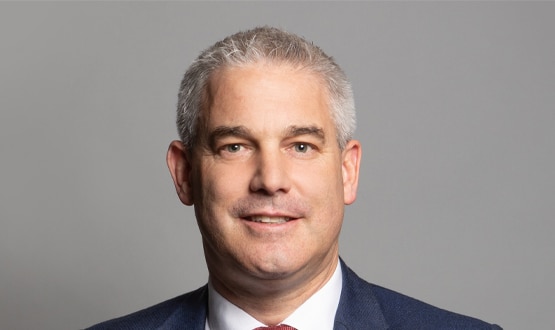Another view: Neil Paul
- 20 August 2012

Being a gadget fan, I go on lots of rumour sites – like macrumors.com – to try and see what is about to come out that will excite me.
I’ve noticed that Apple, amongst others, patent some ideas that on first glimpse you wouldn’t think are patentable.
I saw the other day that the company was trying to patent a cover for the iPad that has a second display in it, which shows information from the calendar.
Now, I can’t believe someone hasn’t sat at home and thought doing this; but presumably they haven’t had the ability or money to patent their idea. And, unfortunately, it’s all about who patents first.
You only have to witness the battle between Apple and Samsung to know this – each is trying to out-patent the other to the point of having products withdrawn from the shops. And that’s two companies that work together on other projects.
You also see regular news items about companies having to pay millions to other companies for patent violations that they may or may not have breached.
I wonder, if you were to start up a company now in your garage in Palo Alto or elsewhere, whether you could compete without spending all your time wondering if you had breached someone’s patent.
You might design a nice interface for a phone only to find all the elements you wanted to put in it had already been taken.
Lots of good ideas
So people with good ideas have it hard in the real world. What about in the NHS? Well, one of the joys of being on eHealth Insider, and of having published some of my own iPhone software, is meeting loads of developers and clinicians with ideas.
Some of them want advice; some publicity; some just want a friendly face to share their experiences with. One way or another, I’ve met loads of clinicians with great ideas for software that would improve health care; a lot of it patient-facing.
A few of these clinicians with programming skills get on and try to develop a product; selling it with varying degrees of success. However, most don’t have these skills and don’t know where to turn.
I’ve also met quite a few developers with some great platforms or ideas who need clinical input. They might just need to know how the NHS works, to get access to patients, to some advice on how to turn their idea into an actual product that someone will buy.
Of course, there are some massively successful examples of companies that have made it. Chatting to these people a couple of themes seem to emerge. These are funding, intellectual property and creating a credible business plan.
A few, disconnected funding bodies
Now, over the last couple of years I’ve come across some positives. The strategic health authority for the North West ran a “dragons den” type event, at which the winners were given funding.
There are other funds that you can bid for. I’ve just found a whole department of the NHS that claims to be dedicated to this kind of thing – although I’d never heard of the NHS Innovation Centre previously, or had any contact from it.
I’ve seen a privately arranged event in London at which developers and clinicians got together and I’ve seen campaigns run by the Department of Health to find medical apps and good ideas for apps to create.
However, finding out about these bodies, the initiatives and events they are running and the funds they might have available seems very haphazard. I think more could be done.
A lack of co-ordinated support
The creator of an idea is often convinced there is something valuable in the idea; yet few want to give away the idea for nothing. How then can the person with the idea get support and possibly funding without doing just that?
Non disclosure agreements are the usual way forward; but who has the time or money to get one written up? Shouldn’t there be a standard one?
Coming back to the dragons den idea – why aren’t there more panels willing to give hard advice on whether an idea is viable or a pipe dream? Why isn’t there a central source of information about potential funding?
Finally, if you are not a programmer, or from an IT background, commissioning a programming team seems like a big and potentially expensive step.
It seems particularly risky if you find that in financial terms the best bet might be to outsource the work, for example to India. Where do you get help to do that?
One idea that I came across recently is crowd funding. I really like this concept, and wonder if it would help some of the ideas that are out there to grow.
Is crowd-sourcing a way forward?
Crowd sourcing is about getting loads of people to do your work for you – like tagging Google images. Crowd funding is a centralised market place where people put their ideas and people with funds can either pre-buy the product if it’s close to market or just invest.
Pre-ordering usually helps cash flow and can help decide what manufacturing process to use for volume. Investment is obliviously on mutually agreeable terms.
Given that we need to save money and maximise efficiency, could we have a website like this dedicated to health ideas and products on which trusts, commissioners, investors and others could all see ideas and get behind them?
About the author: Dr Neil Paul is a full time partner at Sandbach GPs, a large (21,000 patient) practice in a semi rural Cheshire. He is one of five executive GPs for NHS South Cheshire CCG and has a mixed portfolio that includes IT.
He was previously on the PEC of NHS Central and East Cheshire. He also writes iPhone software, runs a primary care clinical trials unit and is involved in several exciting IT projects.




